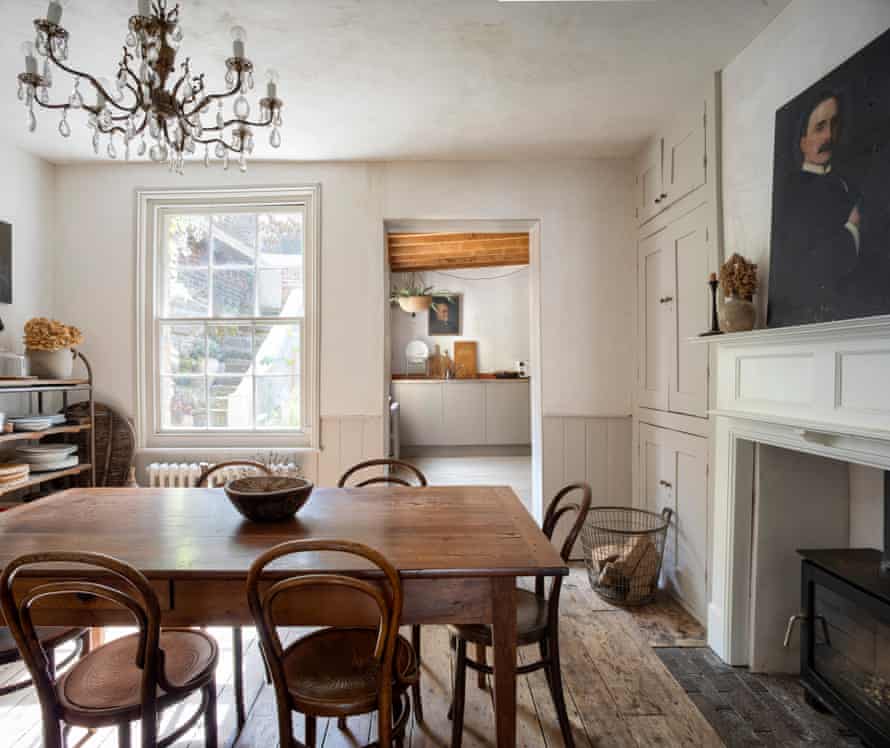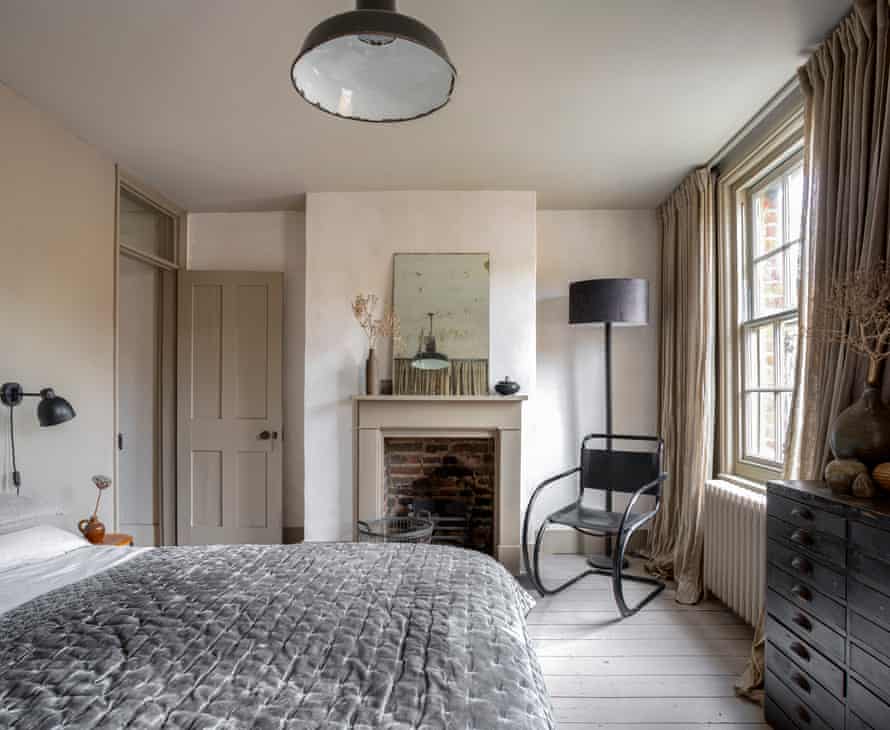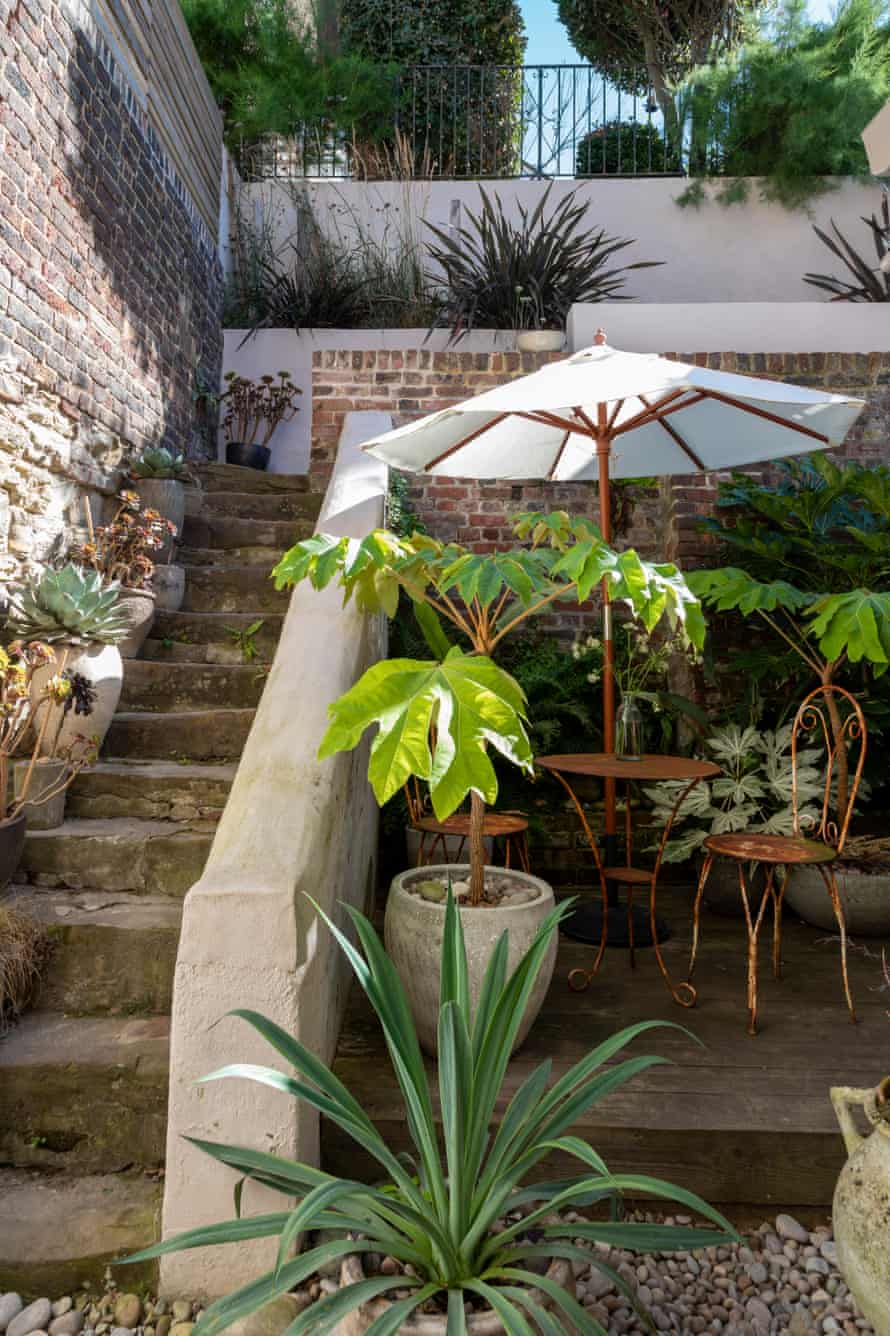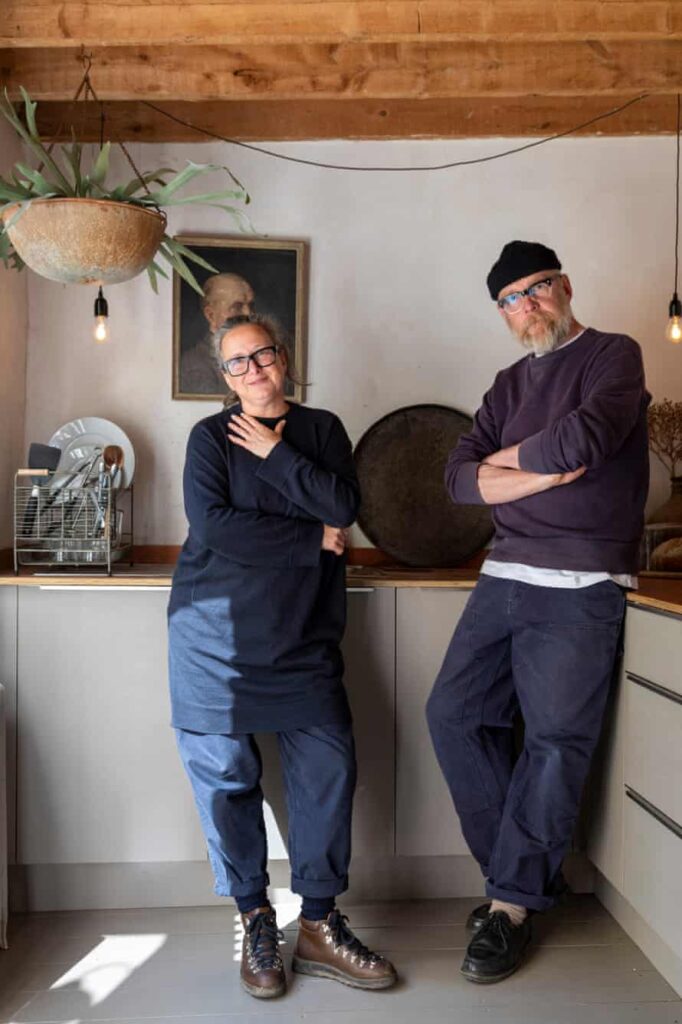Shared from www.theguardian.com
Nicola Helgesen’s love for old buildings and objects was formed as a child, visiting her grandmother’s “crumbly flint cottage” on the north Norfolk coast. She recalls how “the smell was old and papery, with a wonderful scent from the open fire – a soulful atmosphere that is totally lost with modern building materials. She had Thonet chairs, seagrass matting and creaking, painted stairs. That is all ingrained in me”.
Helgesen has created her own version of those rustic seaside interiors that she grew up with in the home she shares with her partner, Andreas Bleckmann, in the Sussex town of Hastings. Built as a bakery in 1835, the three-storey listed building spoke to the couple because of its lovely proportions and location in the heart of the old town, a warren of narrow streets full of historic pubs and a profusion of vintage and antique shops. They bought it in 2017, but the property was in far from move-in condition. “It had been dreadfully neglected. The damp and decay were appalling,” says Helgesen. “The roof had been disintegrating for decades and water ingress had caused so much damage, but we could just about see how much potential the house had.”
It has taken all the couple’s hard work over the intervening years to achieve what they have now: an utterly charismatic home where the stripped-back historic fabric provides the backdrop to their well-chosen finds from across the centuries. The walls have a cloudy lime plaster finish, with a limited palette of neutral paint colours used for the woodwork and flooring, to bring cohesion across the rooms. Helgesen mixes objects from different ages, blending 1930s paintings and lighting with French farmhouse furniture, antique pots from Nepal and delightfully aged Hungarian dough bowls.
“I wanted to use materials and colours in a harmonious way, totally natural and full of texture,” she says. “Ancient sandstone walls are all over the place in Hastings – they look and feel almost Mediterranean – so I also aimed to create a faded, sun-bleached environment, both inside and out. Nothing should jar or sharply contrast, and my colour choices had to work with the clear seaside light that is so characteristic of the south coast.” Helgesen was a fashion designer before she made the move to Hastings (Bleckmann is a photographer) and this background has also informed her style. “The principles are so similar. Bringing together coherent – but not predictable – materials and elements that feel fresh, but are seamlessly bonded.” Texture and patina are the important qualities of nearly everything in the couple’s home, and objects are cherished for revealing their age, from the chipped rim of the enamel pendant light in one of the bedrooms to the grain of the hand-sanded timber floors.

Many items were sourced within a small radius of the old town, such as the 1930s medical cabinet in one of the bathrooms, bought at Hendy’s Home Store, or the French linen cupboard found in a local emporium which the couple brought back to life from being in a poor condition. Other pieces have come from their previous home in east London, and have their own stories attached, like the pair of Mies van der Rohe cantilever chairs. Normally made with a chrome frame, these ones are in black, an unusual detail that caught Helgesen’s eye when she saw them for sale. The only problem was they were in Belgium. “It must have taken about 30 seconds to persuade Andreas to jump in the car and collect them – there and back in one day!” says Helgesen. “He returned exhausted, but it was worth it. We love them.”
The couple’s collection of portraits is another distinguishing feature. Their favourite is the idiosyncratic “Uncle Alfred” as he’s been named, bought from a German auction house. “He is a professional-looking chap, painted in a company-director-style portrait and yet he has bright red lips and eyeliner. We are convinced it was originally painted this way and we love him for it. He makes us smile and he is a great talking point.”

Helgesen and Bleckmann’s distinctive style has now become their vocation, too. They recently founded Oldtownhaus to sell furniture, books, art and decorative objects that fit in with their ethos of “beautiful imperfection”, and the house has become a temporary holding pen for many of them, making the interiors a changing affair as finds get bought and sold. They have also adapted the two bedrooms on the upper floor to rent out as holiday accommodation.
The couple have their own preferred spots in this light-filled haven of a home, with Helgesen admitting she loves to work in bed (rather than in the dedicated office) at the crack of dawn, watching the sun track its way over the old town rooftops, while Bleckmann has his favourite chair “where he sits watching the world go by and studying his beloved photography books” under the watchful eye of Uncle Alfred. When they are together, it is almost always around the dining table: “We love cooking, cracking open a vino and being silly. In the winter we hunker down in the front room and build a fire, and when the weather is lovely we sit in the garden in our shaded area accompanied by the sound of our bubbling water feature draped in moss and ferns – our own private glen.”

With the long period of renovation over and a new business to nurture, this is a time for Nicola and Andreas to indulge in the beautiful home they have created, enjoy hosting the like-minded people who come to stay, and look to the future. “The four years we have been living here have whooshed by, and although we spent most of this period living in a mess and then a lockdown, we both feel inspired and rejuvenated by the life we have created for ourselves,” says Nicola. “We had not intended to leave east London for good, but now, we can’t see ourselves ever going back.”
Images and Article from www.theguardian.com

